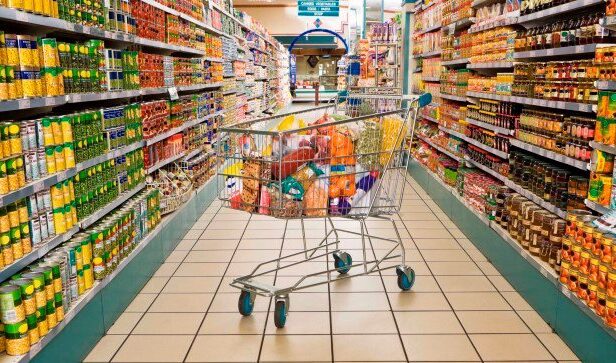The average New Zealand household is now spending $238 per week on food, 9% more than it did a year ago, new research has shown.
Rabobank and food rescue charity KiwiHarvest completed their Food Waste Survey in August, interviewing 1501 New Zealanders about their food habits.
Rabobank head of sustainable business development Blake Holgate said given Stats NZ data found food prices were up by 8% in the year to September, it was no surprise to see the average household food spend rising by a similar margin.
The average NZ household is now spending $238 per week on food, 9% more than it was in 2022.
“At the top end, the survey found there’s been a sizeable increase in the number of households now spending more than $300 per week on food – up to 21% from 15% previously. At the other end of the scale, there are now fewer Kiwis saying their household spends $200 or less per week on food – down to 53% from 59% previously.”
Despite rising prices, New Zealanders’ grocery shopping behaviours are largely in line with a year ago.
Most Kiwis continue to favour doing a main grocery shop and then “top-up” shopping as necessary (72%), with a further 19% saying they do a main grocery shop and no top-up shopping.
The remaining 10% say they only grocery shop as they need things.
Holgate said the survey did, however, uncover a few minor changes in shopping behaviour, which are likely to have been motivated by a desire to keep the weekly food bill down.
When it comes to fruit and vegetables Kiwis are now opting for the cheaper, imperfect option (47% from 40% previously) as opposed to choosing the more expensive regular-shaped option (37% from 45% in 2022).
“Imperfect fruit and vegetables provide the same nutritional benefit as their regular-shaped counterparts, yet they can often be purchased for a significantly lower price and therefore provide shoppers with a great alternative to help keep food costs down,” he said.
“Improved attitudes towards misshapen fruit and vegetables are also likely to help reduce the amount of fruit and vegetables thrown away, thus reducing food waste and its associated negative environmental impacts.”
There was a sizeable fall in the number of New Zealanders identifying as vegan. While the percentage of vegetarians was unchanged at 9%, the number identifying as vegan dropped to 3% (from 5% in 2022).
The survey also found there has been a dip in the percentage of Kiwis saying they are planning to reduce meat consumption.
“Across recent surveys, we’ve seen around 30% of respondents saying they are planning to reduce meat consumption, citing a range of reasons for doing so – including perceived health benefits, the cost of buying meat, and a desire to reduce the impact on the environment,” Holgate said.
“These reasons continue to be the key drivers for Kiwis who say they are looking to reduce the amount of meat they eat. However, the survey data does suggest attitudes towards meat may be changing. Only 25% of New Zealanders are now saying they are planning to reduce meat consumption, while at the other end of the meat-eating spectrum, 9% of Kiwis now say they plan to eat more meat (up from 7% previously).”
Food service app usage appears to have stabilised following several years of strong growth.
The survey found 32% of Kiwis said they’d used Hello Fresh in the past 12 months (from 33% previously), while usage of Uber Eats was at 30% (from 31% previously) and My Food Bag usage sat at 18% (from 20% in 2022).
Despite consistent food app usage, Holgate said, fewer Kiwis say they prepare meals at home at least once a day.
“Preparing meals at home remains the most common form of food consumption, but it continued to decline year on year with only 22% of Kiwis now saying they cooked or prepared a meal more than seven times a week (from 27% last year),” he said.










